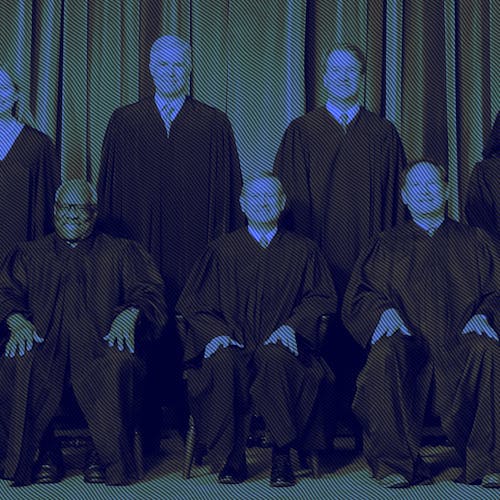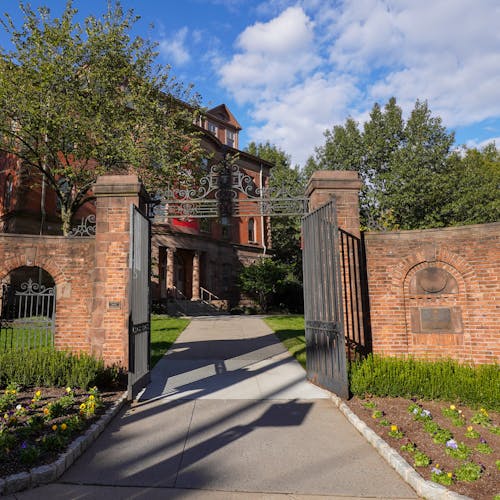SHENOY: More funding needed to assist voting process

Starting today, you will be able to cast your vote for the Rutgers University Student Assembly. By simply going online (and it is really simple — everyone should vote), you can elect your leaders and have a say in the direction of our University.
On a national level, citizens should have the same opportunity: Being able to cast a vote in a simple process and have a say in the direction of the country. However, voting is not so simple at the national level. With a record number of voters turning out for primaries and not enough resources allocated to accommodate the turnout, voters are waiting for outrageous amounts of time to cast their ballot — and, based on the wait times, some avoid doing so altogether. Take Arizona, which held its primaries this past week. As compared with 2012, politicians in Maricopa County greatly reduced the funding for voting locations. With reduced funding, the number of voting locations in Maricopa County dropped tremendously, from 200 locations to 60 locations, a nearly 70 percent decrease. As a result, there was about one polling place for every 108,000 residents in Phoenix. One resident, Cynthia Perez, waited more than three hours to cast her ballot and she rightly explained afterward, “This is not what democracy is about.” Take a bow, Ms. Perez, because most people would not wait that long to cast their vote. And when that happens, democracy itself is not working.
This problem is not unique to Arizona. States like Maryland and South Carolina faced similar problems during the 2012 election. Maryland law requires that there must be at least one voting machine for every 200 registered voters, however, only 152 of the 1,359 studied precincts by the Brennan Center for Justice met those standards. For the polling locations that closed more than 30 minutes late in Maryland, there was an average of 230 voters per machine. South Carolina was similar. Only 25 percent of precincts met the South Carolina standards for machine-to-voter ratio, which required one machine for every 250 voters. In Richland County, additionally, voters had an average wait time of 80 minutes. More than 87 percent of precincts did not meet the state standard for machine allocation, and more than 94 percent of precincts did not meet the state standard for poll worker allocation, according to New York University’s Brennan Center. Some states, like Florida, have no standard at all, letting election officials chose on a case-by-case basis how to allocate resources. This is unacceptable.
Ever since the Supreme Court struck down key provisions of the Voting Rights Act, which required certain states with histories of voter discrimination to submit law changes for approval by the federal government, states have made voting more difficult. Voter ID laws and restrictions on early voting, in particular, are suppressing voters — and there are many political battles being fought over these laws. But simple fixes, like resource allocation for voting machines and poll workers, should be a no-brainer. Our elected leaders should increase funding for the resources that got them elected in the first place. They should ensure that every location has adequate, functioning voting machines and enough staff to serve the voters (high school and college student labor are cheap!). Creating a federal minimum early voting period, standardized across all states, would allow some to vote early and reduce the lines on voting day itself. Instead of restricting mail-in ballots and early voting, we should be increasing it. And we should also create new laws, which are enforceable, that set minimum requirements for resource allocation, including the required voter-to-machine ratio as well as poll worker-to-voter ratio. Voting is such a sacred part of our democracy, and a privilege which many people across the world do not have. We must treat it accordingly.
I still distinctly remember going with my parents to the local polling location, which turned out to be my elementary school, and entering the polling both. We closed the curtain behind us, and I truly saw democracy truly in action. I left the booth excited and proud to one day participate in democracy. If we want to keep generation after generation involved in the voting process, we must start with small, easy, simple steps.
Don’t forget to vote this week!
Vineet Shenoy is a School of Engineering sophomore majoring in electrical engineering. His column, “The Political Backburner,” runs monthly on Fridays.
YOUR VOICE | The Daily Targum welcomes submissions from all readers. Due to space limitations in our print newspaper, letters to the editor must not exceed 500 words. Guest columns and commentaries must be between 700 and 850 words. All authors must include their name, phone number, class year and college affiliation or department to be considered for publication. Please submit via email to oped@dailytargum.com by 4 p.m. to be considered for the following day’s publication. Columns, cartoons and letters do not necessarily reflect the views of the Targum Publishing Company or its staff.



